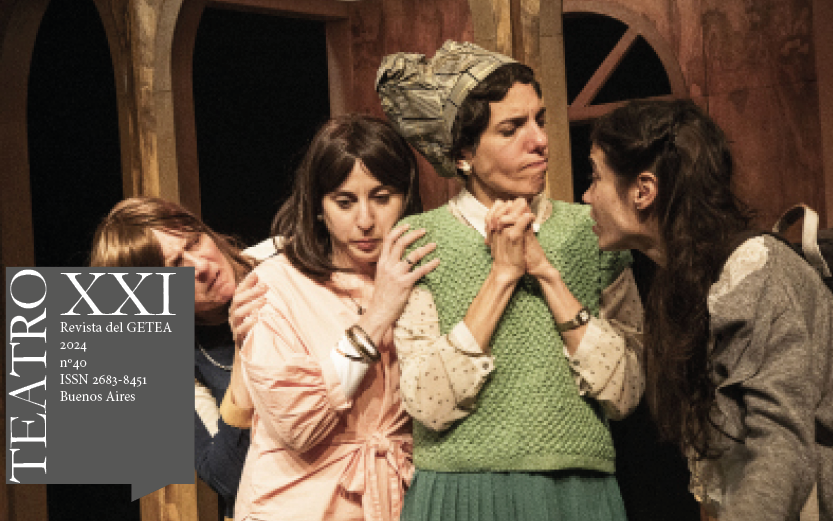Imaginarios en torno a la figura del espectador en el Teatro del Pueblo (1931-1943)
Palabras clave:
Teatro del Pueblo - teatro independiente - espectadores
Resumen
Creado en 1930, el Teatro del Pueblo fundó una tradición que se mantuvo vigente por décadas, que ha sido estudiada como fenómeno de la cultura desde las perspectivas histórica, estética y político-intelectual. Ya sea por su importancia dentro del campo teatral argentino como fundador de una línea ideológica, o por su metodología de trabajo particular, que aún encuentra resonancias en el presente, el Teatro del Pueblo se presenta como pieza clave para el abordaje de la historia de los teatros independientes. El objetivo de este artículo consiste en relevar algunas ideas en torno a la figura del espectador que circulaban dentro del grupo de artistas e intelectuales que formaban parte del Teatro del Pueblo, a partir del análisis de una serie de textos publicados en las revistas que funcionaron como sus órganos de difusión oficial: Metrópolis. De los que escriben para decir algo (1931-1932) y Conducta, al Servicio del Pueblo (1938-1943). Desde la perspectiva de la sociología de la cultura, intentaremos desmontar el entramado conceptual que subyace estos materiales y entender cuáles son las concepciones de espectador, público y pueblo que operan en el imaginario de este grupo, y especialmente de su director y fundador, el escritor, periodista y dramaturgo Leónidas Barletta (1902-1975).Descargas
La descarga de datos todavía no está disponible.
Publicado
2024-05-29
Cómo citar
Sánchez, B. (2024). Imaginarios en torno a la figura del espectador en el Teatro del Pueblo (1931-1943). Teatro XXI, (40). https://doi.org/10.34096/teatroxxi.n40.13752
Número
Sección
Dossier
Derechos de autor 2024 Teatro XXI

Esta obra está bajo licencia internacional Creative Commons Reconocimiento-CompartirIgual 4.0.












